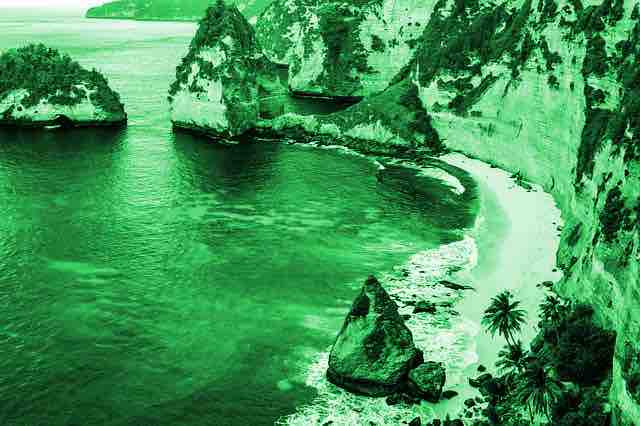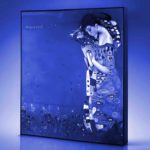Our intuition is sometimes our most valuable asset when it comes to making a decision. The apparent chaos, or at least the upheaval we witness, leaves little room for clarity. This confusion paralyzes our ability to make decisions, which makes us somewhat passive, well not quite. Indeed, not making a decision is a decision in itself. The problem is that the endless repetition of this avoidance of decision making forces us to adhere to the status quo by default. How do we know we have made the right choices if we are constantly avoiding making a decision?
We can reconnect with our inner wisdom, which can serve as a guide in times of crisis. Intuition, as it is called, is like a surfer’s board that bends when the waves overtake it. It knows when we need to propel ourselves to ride the wave and when not to. Life is a succession of waves that carry us, but we must identify them as such and recognize when to let go of those that will take us nowhere. We can’t surf all the waves of the ocean. Sometimes the best wisdom is patience, waiting for a better wave. Nevertheless, you have to know how to launch yourself, to accept that mistakes can be part of the plan. How can you know how to surf if you don’t make the mistake of “catching a wave” even though your momentum or your positioning was not perfect? We have to get out of the search for the absolute right decision. Basically, we must not make the choice, we must make our choice good.
Whether you are a beginner or an experienced surfer, surfing requires that you take the risk of missing out. Sometimes our intuition plays tricks on us. The bad choices we may make are never totally bad: they teach us lessons that will help us better surf the next wave in life. Of course, we can learn from others, we can continue to be spectators. However, we can’t surf by watching others while we let the waves pass us by. Our life is not lived vicariously, it must be embodied in our good decisions as much as in our mistakes.
Keystone habit
To be able to surf well, you must have good positioning habits. This habit conditions all the others. The same is true for life: one habit acts as a domino effect on the others. To maximize your chances of success, you need to identify the habit that plays a similar role to the habit of positioning yourself well in relation to the waves. For you, it could be getting up early, going for a run, etc. It is very important since it plays the role of a keystone: it supports and generates many of your daily habits. It is up to you to define it. It is a habit that will guarantee you a minimal level of results on a daily basis, it will create a dynamic that will carry you throughout the day.
Do not give in to impatience
When you’re surfing, especially if there are people around you, you tend to get impatient in order to prove to others that you can surf well (that in itself is the mark of a poor surfer!). We don’t want to be a mere spectator of these waves that are passing by. This social pressure that exists on the water is multiplied in real life. It leads us to want to show the world our value and take shortcuts. This impatience prevents us from having a discerning mind to ride the best wave of a series. In real life, it is like choosing a job to show people how useful we are when we could have been more patient and studied longer to get a more qualified job. It can also be to put oneself in a couple to do like the others. This haste which gains us obstructs our vision and prevents us from being in control: we undergo our environment instead of using it as a good wave.
Wu wei: do not force anything
To overcome this problem, it is advisable to adopt the “wu wei” spirit which consists in not forcing things and letting them come by themselves as the ripe fruit falls from the tree. The idea is not to be passive, but rather to be serene and intuitive in our approach to things that come our way. This detachment makes it possible for the flowers of change to bloom without acting in a desperate manner. To be in “wu wei” is to act like a gardener towards his plants, he knows that the leaves will grow and that it is futile to try to pull on the roots to speed up the process.
You are not your work
There is a clear difference between the surfer and his wave. He spends a lot of time on a training session, so he will never think he is that wave. It is the same with a job: it can help us move forward but it does not define who we are. But it is common to be so obsessed with one’s work that one loses the essential, i.e. our human nature, which is not fundamentally productivist. Identifying ourselves too much with our work can gradually corrode our personal space in such a way that we no longer have clearly defined limits and we can no longer protect our private life. To get back on track and correct this flaw, we must distance ourselves like surfers let the waves pass by and let them react. Concretely, this implies letting go of your job, that is to say making a real break to regain a healthy discernment.










